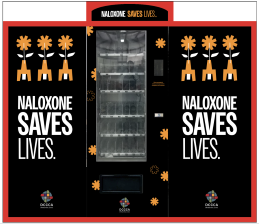May 28, 2024
The Community Health Corner

The National Extension Framework for Health Equity and Well-being recommends using community development strategies and health literacy programs to ensure that everyone has a fair and just opportunity to be as healthy as possible. The following resources help us improve well-being for all, and achieve Healthy Kansas 2030 and Healthy People 2030 objectives.
Suicide Awareness and Prevention: Communities and schools need a prevention, response and postvention plan in place before youth suicide occurs. The Kansas Dept. of Education’s The Kansas Suicide Prevention, Intervention, Reintegration and Postvention Toolkit contains information to coordinate plan development and implementation. This comprehensive toolkit provides step-by-step guidance for setting up an effective approach to suicide prevention, response and postvention. Forms from the toolkit can be downloaded for easy access and use.
Naloxone Vending Machines in Kansas: DCCCA, Blue Cross and Blue Shield, and the Kansas Department of Aging and Disability Services (KDADS), with funding from the State Opioid Response (SOR) through federal SAMHSA, have placed FREE naloxone vending machines in Hutchinson, Kansas City, Lawrence, and Wichita. Naloxone, also known as Narcan, is a medication designed to rapidly reverse an opioid overdose. Residents can access the free naloxone by simply entering their zip code on the machines. Information about the Naloxone program is here. County level overdose statistics collected by KDHE are available here.
Benefits of Slowed Eating: In 2022, McDonald’s fast food restaurant recorded a more than 10% increase in sales over the previous year. In rural areas, the number of fast food restaurants has doubled since 1990, accounting for 36% of the total “food-away-from-home establishments” in 2019. Though some think that meals are best when they’re efficient and convenient, but it’s been nearly 15 years since studies showed that slow-eating has positive health benefits. Harvard Medical School released a blog about how slower eating allows the stomach to feel full so that over eating is reduced. More recently in April of this year, Dr. Leslie Heinberg of Cleveland Clinic released a report about the benefits of slower eating and four ways to slow down: a) give yourself enough meal time, b) slow down your chewing, c) sip on water, d) practice mindful eating.
For more information, contact Elaine Johannes, ejohanne@ksu.edu; and Stephanie Gutierrez, smgutier@k-state.edu